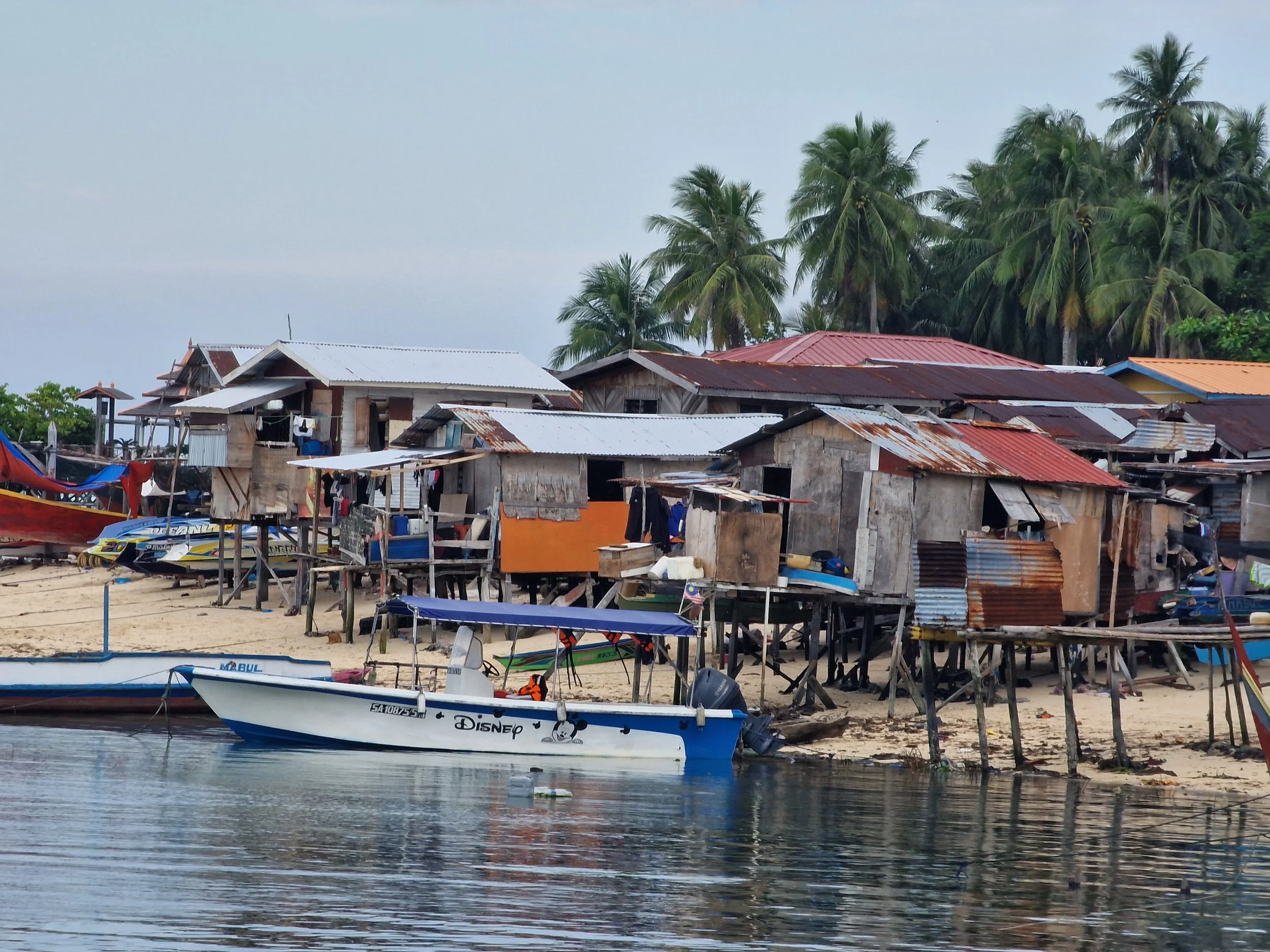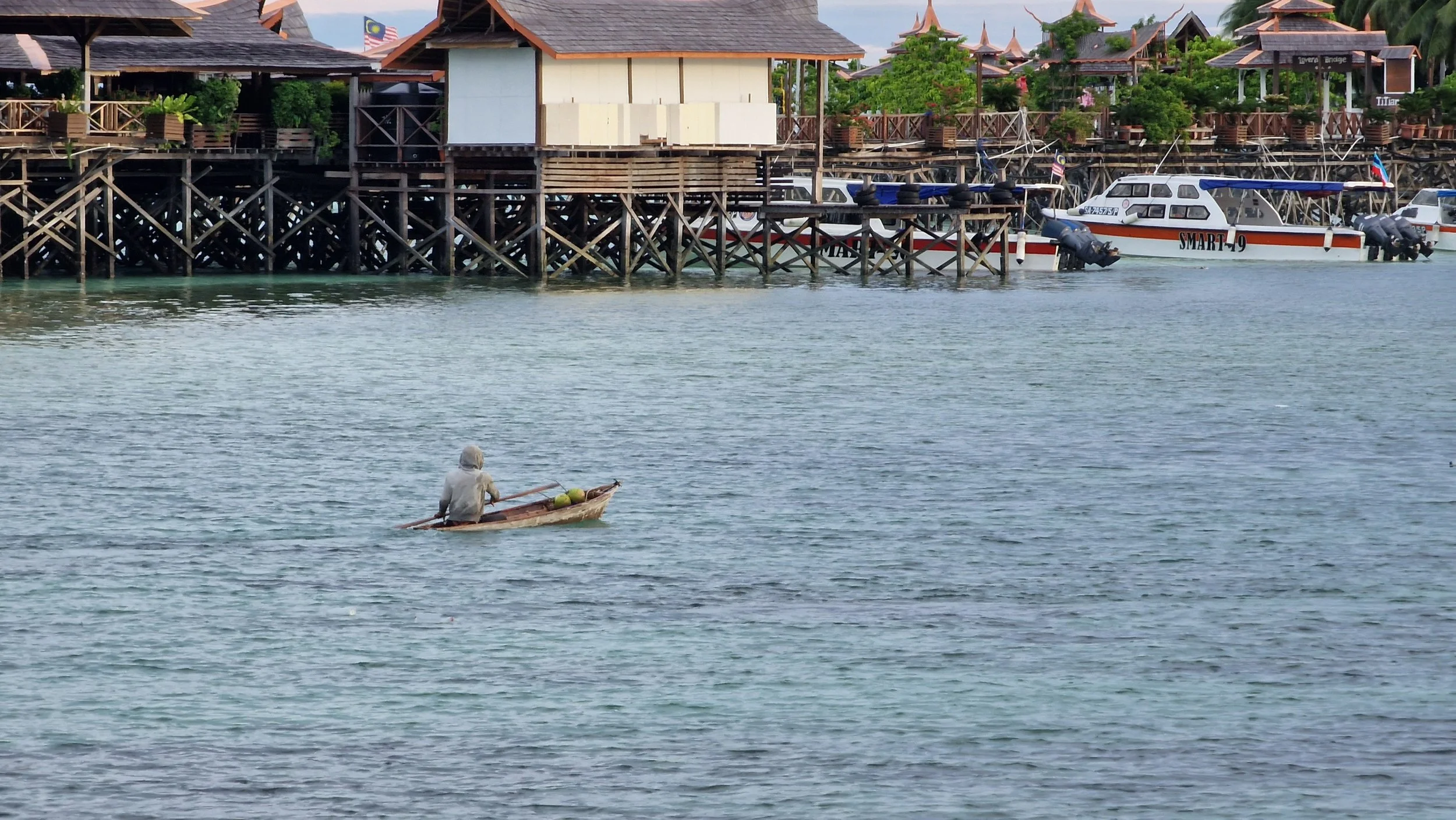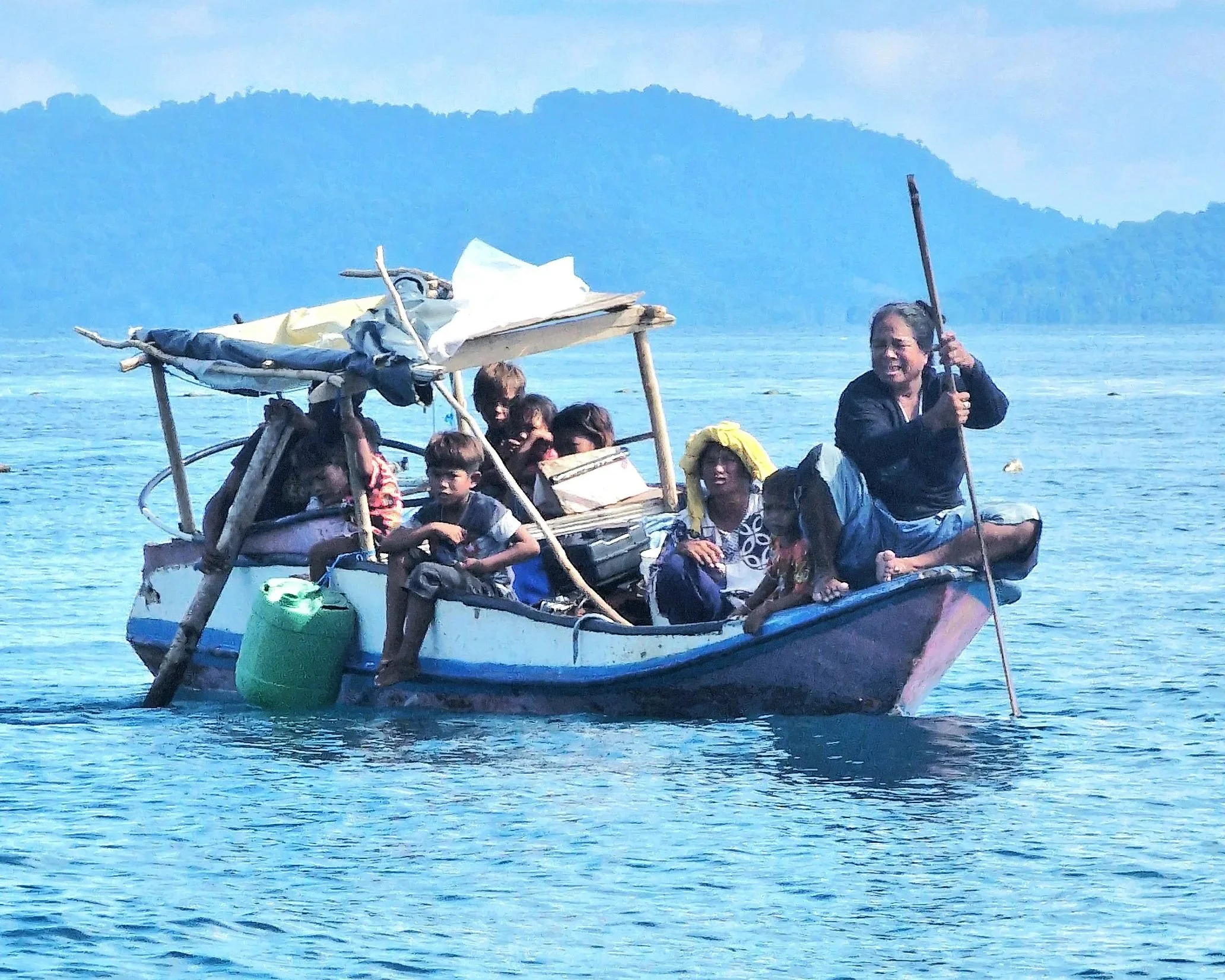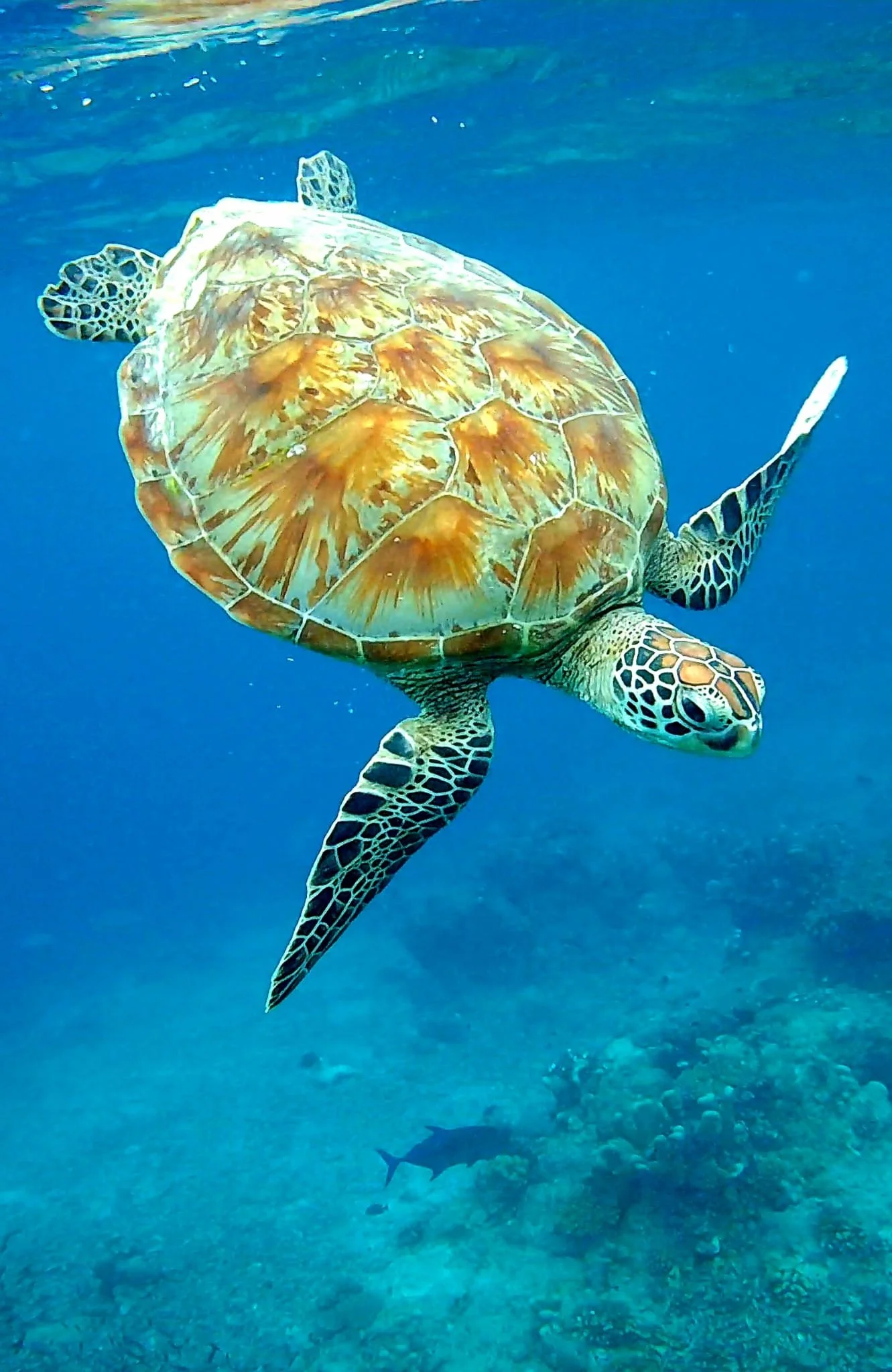Fascinating Sabah - Meet the Bajau Laut
The village of the Bajau Laut - or “sea gypsies” on Mabul island, near Semporna, Borneo.
Off the southeastern coast of Sabah, about 35 km from Semporna, lies the little island Mabul. Since the 1970s, the island has been a fishing village. The majority of the villagers are Bajau Laut, or “sea gypsies”, as they are often referred to, due to their nomadic lifestyle. Staying at Mabul Beach Resort, right next to their little floating village and learning about their way of life, I was deeply impressed by this subgroup of ethnic Sama-Bajau. Living on floating homes or boats, the Bajau roam the Sulu Sea since the 15th century, hardly setting foot on land, reporting to feel “landsick”, when staying too long ashore. The Bajaut Laut are celebrated free divers. A DNA mutation for larger spleens gives the Bajau a genetic advantage for life in the depths of the ocean. The Bajau’s spleens are roughly 50% larger than those of their land-dwelling neighbors. It is said that they can dive to more than 70 m depth and hold their breath for over 10 minutes.
The Bajau Laut roam the waters of the Coral Triangle between Malaysia, the Philippines and Indonesia. Some rarely every set foot on land, however others settled at shore, living in fragile stilt homes or boats anchored off the islands. They earn their living mostly based on the ocean’s resources, hunting for fish, lobsters, sea cucumbers and other marine life. Despite being cultural icons of the Sulu and Sulawesi seas, they are living an extremly hard life. Most Bajau are not afforded citizenship status by either Malaysia, Philippines or Indonesia, exculding their children from the formal education system, as it is a requirement for students to have birth certificates and for both their parents to possess national identity cards.
In Malaysia, they are often referred to as «Filippinos», more tolerated than accepted. The Malaysian Immigration Act of 1959/1963 failed to distinguish between asylum seekers, refugees, irregular migrants and undocumented or stateless individuals. The Bajau have little to no chances of earning citizenship despite having settled around Sabah’s east coast for generations. Without citizenship, they are unable to own land, are excluded from formal employment and do not have access to basic healthcare.
Some Bajau Laut live on so called “Lepas”, their traditional boats.
While locals profit from the recent tourist boom in and around the Tun Sakaran Marine Park, advertised as the «Maledives of Malaysia» and very popular among Chinese tourists, the Bajau Laut still earn their living with underpaid menial work, usually as illegal employees. Overfishing, global warming as well as plastic pollution significantly impacts the Bajau by diminishing their primary food source and disrupting their way of life. While the creation of the Tun Sakaran Marine Park is tackling the issue of overfishing and loss of marine biodiversity, park regulations and evictions put more pressure on the Bajau Laut. The nomadic sea-faring group that inspired director James Cameron's Avatar sequel (Avatar: The Way of Water) are facing an existential threat as the Malaysian government forcibly evicts them and destroys their homes. In June 2024, according to ABC Australia, the Malaysian gouvernment demolished the homes of about 500 Bajau in Sabah, Borneo. Sabah's Minister of Tourism, Culture and Environment said that the government was responding to "illegal activities" such as fishing, building structures and farming without permission around the Tun Sakaran Marine Park, a well-known location for diving among tourists. Activists argue the government unfairly targeted the Bajau Laut people, who have been living in the region since before Malaysia even became a country in 1963. The forced evictions of the Bajau Laut community in Tun Sakaran Marine Park have spotlighted the complex balance between conservation efforts and the rights of Indigenous Peoples.
A Bajau transporting some coconuts back to the village.
On Mabul, I stayed at Scuba Junkie’s Mabul Beach Resort which is right next to the little Bajau village. At first I felt like an intruder, staying in a resort that was basically built in the backyard of the Bajau’s stilt houses. I often saw them paddle around the resort’s jetty on their “lepas”, their traditional boats, bringing their freshly caught seafood and fishes ashore to sell them to the other resorts on Mabul. Scuba Junkie does not serve seafood; they say that “fish are friends” and not food, which totally make sense because their guests are mainly there to see the fishes when diving or snorkeling. At first, I was hesitant to enter their village. However, when I dared to walk through it,
A family of Bajau returning to Mabul island.
I was greeted by their many kids. I found myself in so many group hugs, it was heartwarming. The shyer kids went for high fives and gave me their beautiful smiles. Inside the village, some villagers sell snacks and drinks or little souvenirs. Scuba Junkie supports and works with the community of the Bajau Laut living on Mabul, supporting a school located on Mabul Island and working with the Bajau regarding the conservation of sea turtles. The Bajau have a complex relationship with sea turtles and their eggs, which are sometimes consumed as food or traded. In some Bajau communities, turtle eggs are a traditional food source, while in others, they are traded, sometimes illegally. Conservation efforts often clash with the Bajau's traditional practices, leading to conflicts between local communities, government agencies, and conservation organizations.
While snorkeling around Sipadan I met this beautiful green sea turtle.
Scuba Junkie runs a turtle hatchery on Mabul island, launched in 2011 to stop the poaching of turtle eggs, which they do with the support of the local community. When a member of the local community informs them of a nesting turtle and they are able to relocate the nest they are given RM 500 as a reward for the information. Their programm is incredibly successful, having released over 23’000 baby turtles. When snorkeling or diving around Mabul, Kapalai or Sipadan you will see turtles. That is guaranteed! Scuba Junkie also involves the local community in tackling marine debris, raising awareness regarding plastic trash pollution and help them finding alternatives to selling sea shells and other marine lifes. One of their dive guides taught some Bajau women to crotchet and they are selling their lovely little souvenirs now at the shop inside the resort.
If you are staying on Mabul, do not hesitate to walk through their village and buy some snacks from them. Please do not buy shells or other marine life but go for their crafts or adopt a turtle at Scuba Junkie which will help their conservations efforts and also the communitiy on the island, since they are directly involved. Ask before you take pictures of people inside the village and please also ask before publishing them on Social Media or anywhere else. Although there are tours being offered to visit Bajau villages around Semporna, keep in mind that they are people with feelings and a right to privacy and not a tourist attraction, although they might be traded as one.
Soon there will be an article about snorkeling around Mabul, Kapalai and Sipadan as well as a tour I took from Semporna to Bohey Dulang, Mantabuan and Sibuan. Stay tuned!






